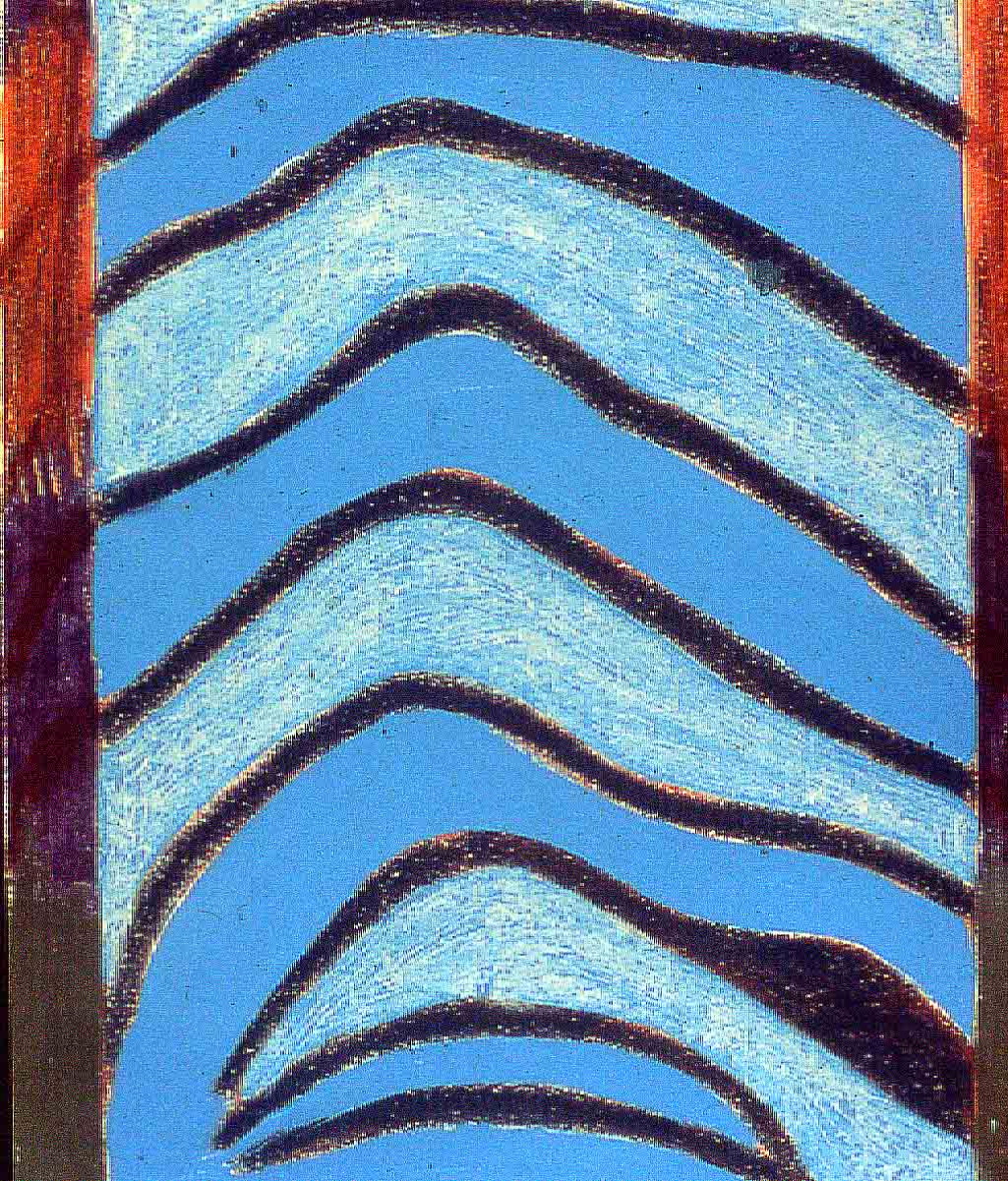
Artwork by Ira Joel Haber
It was a year when people climbed church steeples and jumped off, their minds whipped by the hot wind blowing from the desert, across the sea. The old men say the devil came that year to Segovia, under the guise of a young man named Jeronimo Rugera. They say you could see him one evening, walking on the aqueduct, contoured in bright black against the fiery sundown sky, and then in the space of a breath, he unfurled his wings and jumped off, floating into the city.
But when Jeronimo Rugera first knocked at the Unicorn's door, no one knew who he was and there were no wings to be seen. There was just a young Spanish gentleman, black-eyed, long-fingered, and agile, who asked for a room and a glass of sherry. The men looked at him with unease. He spoke like a nobleman, the cut of his clothes betrayed fine tailoring, but his body seemed to hold inside, coiled tightly, the energy of a young peasant going to a dance. The innkeeper's daughter watched him from behind a curtain, hot-flushed, trembling.
Then Rugera sat down and took a pack of cards from his pocket. Twenty pairs of eyes alighted on him. He shrugged and made the cards flow from one hand to the other like a live snake.
"I heard," he said, "the men in this town are good gamblers."
"You heard well, young man," said Simon Ortiz. "Who might you be, to come here and talk to us like this?"
"My name is Jeronimo Rugera, of the Rugera family hailing from Valencia, and I am the best gambler in the whole of Spain and Portugal," he answered.
"That is a proud claim," said Simon Ortiz quietly.
"I have left Valencia, went to Cadiz and to Barcelona, even to Madrid," Rugera said. "I am the best, and I am here to prove it."
After this, there was no way for the men to pretend they hadn't heard. A table was set, and three of them sat down, with Simon Ortiz facing Rugera across the table.
The cards were dealt, and silence buzzed in the air like the smell of lightning at the top of a mountain.
They were there, the old men say, for two days and two nights. Ortiz had been a gambler all his life, had walked the kingdom north and south, east and west, knew every trick there was. He fought like a lion, like a tiger, like a shark. Rugera dealt with sure hands, narrowed his eyes to a slit when watching the others at the table, sliced the air with a smile making the men around the table take a step back. There were ten long sharp knives in the room, ready to be unsheathed at the slightest sign of cheating, the slightest word from Ortiz, but they remained hidden and quiet.
At the end of the two days, Rugera stood up from the table. He had everything. The gold, the silver, titles to the best plots of land in Segovia.
"I want to trade something," he said.
"There is nothing left to trade," said Ortiz, his shoulders low. "You have ruined us. Go away, stranger."
"I want this woman," Rugera said, pointing to the innkeeper's daughter. "And you can have everything back."
The old men are quiet about what happened afterwards. All that is known is no one named Rugera owns any land or any building in Segovia. And the innkeeper, now white-haired, passes his days on a chair in front of the inn, watching the aqueduct at sunset, quietly mouthing some words until he falls asleep.